- About
- Membership
- Resources
- Awards
- Events
- Get Involved

We congratulate the 2021 NABT Teaching Award Recipients and are honored to recognize their achievements.
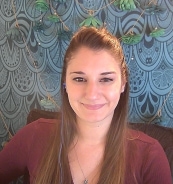
Washington State University, Pullman, WA
I grew up in Olympia, WA and attended Whitman College where I studied biology and environmental studies. I earned my master’s in teaching from the University of Puget Sound in 2016 and moved to the San Francisco Bay area to teach biology at Pinole Valley High School. Over my past five years of being a classroom teacher, I have taught a variety of courses ranging from ELD-specific biology to AP and IB courses. During that time, I also introduced two brand new biology courses to the school. I have served as the chair of the science department for the past three years. In the summer of 2021, I will be moving back to my home state of Washington to continue my teaching career at Sumner High School. I have recently started to pursue my second master’s degree, this time a professional science master’s in molecular biology through Washington State University. I plan to complete this degree by 2024 while still teaching in the classroom full time.
My love of learning has allowed me to grow as a teacher. I am constantly inspired by my student’s curiosity to learn more about the biological world so I can better explain it to myself and others. I love having the ability to take a concept or phenomenon that seems so unexplainable and break it down with biology concepts. I am continuing my education both out of pure interest for the subject and to be better able to connect my students to intriguing biological concepts.

Glenbrook South High School, Glenview, IL
Sustainability and equity are my passions. Inspiring students to take action for themselves, others, and our planet is my calling. A graduate of Lake Forest College, I majored in Environmental Studies and Biology and continued at the University of Illinois Urbana-Champaign where I received a Master’s degree in Curriculum and Instruction. Teaching in the Chicagoland area for over 13 years, I have guided students to succeed in a variety of ways. I have led our Biology team in the implementation of the Illinois Biology Storylines that have significantly increased student voice, collaboration, and achievement. Presenting at NABT, NSTA, ISTA, and LSI for over three years, I share how equitable practices using storylines help our marginalized students achieve at a higher rate and develop a sense of belonging in the classroom. To build an appreciation of our environment on our campus, I have led our environmental club students to action. They wrote and received a grant and worked in collaboration with administration and other clubs to plant the first pollinator garden on campus even throughout the challenging pandemic year. Future goals include utilizing a Project Based Learning approach from the College Board for AP Environmental Science. I am excited to further challenge students to collaboratively create multifaceted solutions that can be presented to a larger audience for action. When I am not teaching I am a mom to two busy and amazing children, a yoga and peloton enthusiast, and cannot get enough of reading and traveling with my partner.
I currently teach at Glenbrook South High School in Glenview, Illinois where I also reside. My goals include promoting equity and belonging for students in the Biology co-taught classroom via the Illinois Storylines. Further, I desire to share and collaborate with fellow teachers by attending and presenting at local and national conferences. As a person of color, I am also invested in cultivating a classroom environment that embeds a culturally responsive curriculum to promote student voice. As I actively participate in our equity cohort program to further apply best practices in my Biology and AP Environmental Science classrooms, my goal is for students to appreciate the value of our environment and realize they have the power to collaboratively take action to make a difference.
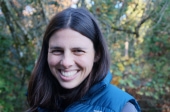
Arizona State University, Tempe, AZ
Sara Brownell, PhD is a Professor in the School of Life Sciences at Arizona State University. She is a discipline-based education researcher who focuses on how we can make undergraduate biology learning environments more inclusive, particularly for women, students with disabilities, transfer students, religious students, and LGBTQ+ students.
Personal Teaching Statement
My goal is to create inclusive teaching environments so that students can maximize their learning. I try to get to know who the student is as a person and I strive to be
reflective and responsive in my teaching to their needs.
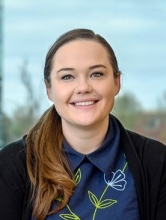
Middle Tennessee State University, Murfreesboro TN
M. Elizabeth Barnes, PhD is an assistant professor of biology education at Middle Tennessee State University where she runs the Social Perceptions of Science lab. In her lab, researchers study how to teach topics that are important in biology education, but controversial in society such as evolution, climate change, and vaccines. The majority of her work has focused on how to teach evolution to religious students in a way that can help foster diversity and trust in evolutionary biology.
Personal Teaching Statement
Evolution and deep time are my absolute favorite topics to teach in biology. The vastness of space and time often makes us feel a sense of insignificance in the universe. Evolution reminds us
of our significance because, through evolution, the universe has figured out a way to know itself. I feel so privileged to be able to share this with students and help imbue in them a sense
of appreciation for the vastness, complexity, and beauty of evolutionary biology.
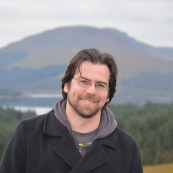
Stephen F. Austin State University, Nacogdoches, TX
Biography
Dr. Bruck Is an Assistant Professor of Biology from Stephen F. Austin State University in Texas. His research is focused on dolphin communication, cognition and conservation and he teaches a
wide range of courses including Marine Biology, Mammalogy, Animal Physiology, Introductory Biology, Invertebrate Zoology, Ecology and Evolution, as well as a course on The Mind team taught
with the great Prof. Donald French. Dr. Bruck got his B.S. in Biopsychology from Long Island University and his Masters and Ph.D. from the University of Chicago where he identified that
dolphins have the longest social memories yet discovered in a non-human species. Dr. Bruck did his post-doctorial work at the Sea Mammal Research Unit of the University of St. Andrews in
Scotland studying dolphin chemoreception. Currently he is working on the development of CUREs involving the use of drones and wild animal conservation, giving students opportunities to use
cutting edge technologies for tangible good at the undergraduate level.
Personal Teaching Statement
I grew up in a veterinary hospital and spent my formative years surrounded by almost every animal imaginable because my parents were the wildlife rehabilitators for the county. When animals
were too sick or injured to be released they fell under our care. I remember my parents bringing hawks, owls, skunks, etc. to my classroom to show my classmates the beauty and value of these
animals. That was my first interaction with what I viewed to be effective Biology teaching. My parents weren't educators by practice, but the passion they had for these animals helped instil
values in students shaped by specific knowledge and information about the individual creatures they demonstrated. As an educator I have never forgotten how important passion and tangibility
are in teaching biology. That is why I believe in course based authentic research opportunities with real animals. My main research subjects are dolphins, and I am often able to bring
students into the field to work with these charismatic megafauna on questions they help generate. But even when that is difficult to do with a large class, I still feel it is important to
bring students into research as much as possible. This is why I maintain an active research program using monogamous Ukrainian steppe mice (Mus spicilegus) that lend themselves well to
student generated research questions about how social and reproductive monogamy affect cooperation in a unique organism. I also incorporate goal-oriented labs with invertebrates where the
objective is the same for each lab team, but because they choose the species, the methods each group uses to complete the lab varies widely. For example, if I ask my students to get
electrophysiological readings from their subjects my worm team may need to use a faraday cage to get clean signals whereas my crayfish team will likely need a dremel. Through all of this I
have been able to facilitate the publication of peer-reviewed work with my undergraduate students on questions that they generate. All of this feeds into building up the student's confidence
in solving the same types of problems in the lab that scientists face in the research world.
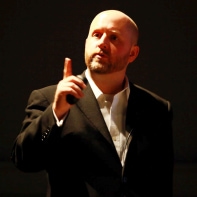
Syracuse University, Syracuse, NY
Jason R. Wiles, PhD is a biology professor at Syracuse University. As a Discipline-Based Education Researcher (DBER), his scholarship focuses on teaching and learning in the life sciences. The Wiles lab studies how students and the general public think about concepts such as evolution and climate change, where not just understanding the science, but also factors related to identity and ideology, may impact attitudes and acceptance. Professor Wiles also studies, and is committed to supporting, diversity, equity, and inclusion in biology and other STEM fields.
Personal Teaching Statement
I believe that all students can learn. Students deserved to feel valued, heard, and safe in the classroom and in our schools. I want to meet students where they are, help them think about
where they want to go and what they need to learn, and facilitate their reaching their goals. I believe teaching should be based on evidence, involve rigorous assessment, connection to
students, and deep reflection. My research reflects these values, and my teaching is informed by my research as well as that of my colleagues.
Millburn High School, Millburn, NJ
Dr. Susan Arrigoni is a Biology and Science Research teacher at Millburn High School in Millburn, New Jersey with twenty years of experience.
Susan especially enjoys mentoring students in a three-year Science Research Program. Guiding students to pursue their STEM interests and conduct experiments is amazing; she sees first-hand the difference in learning as students engage in the research process. It is wonderful to observe students working in a subject area that inspires them to delve deeper and seek answers to their research questions. Each year she finds the diversity of topics astounding; students are eager to understand today’s problems involving genetics, cancer, microbiology, and the environment to name a few. Students are driven to change the world and are continually learning how they may do so.
To celebrate and share student research with the community, Susan organizes an annual science symposium. In addition, students present their projects at local, state, national, and international science fairs and symposia; several have published their findings. She takes great pleasure in seeing students excited about research and how their experiences are a path to further research postsecondary and for many, a STEM career. She realizes significant value to implementing a research program in high school and is enthusiastic to help others to develop related curriculum.
A favorite event is the local elementary school science fair. Susan and her class provide guidance to the students as they learn the research process and are beginning to think about their own experiments. The class enjoys talking to the young aspiring scientists about their projects. At the same time, many Science Research students reflect fondly on their science fair involvement and the first “spark” to their research passion. It is an exciting STEM experience for all!
For Susan’s encouragement of students completing scientific research in the STEM fields, she was the recipient of the Nokia Bell Labs North Jersey Regional Science Fair (NJRSF) Partners in Science Teacher Award and the Junior Science and Humanities Symposium (JSHS) Teacher Award sponsored by the U.S. Army, Navy, and Air Force. She is also proud to have been recognized with the NABT Outstanding Biology Teacher Award (OBTA).
Prior to pursuing her passion to being an educator, Susan was a quality assurance microbiology laboratory supervisor with Six Sigma Black Belt Certification and an industry lecturer on topics concerning environmental contamination and control. During this time, she welcomed opportunities to visit local schools to teach about the field of microbiology. Eager to inspire others to learn about and consider a science occupation, she felt more students could be reached if she pursued being a teacher and moved from industry to the field of education.
Susan earned a B.A. degree in Biology with a concentration in microbiology from Rutgers University and an M.A. and Ed.S. in Education and a Ph.D. in Higher Education, Leadership, Management, and Policy from Seton Hall University where she is also an adjunct professor. When not teaching, she enjoys spending time with family, walking her dog, and practicing yoga.
Susan is dedicated to increasing STEM participation. She is determined to understand and help those who are traditionally underrepresented in the STEM fields. In her research, she explores factors that influence female science study and career aspiration. It is important that students, particularly precollege females, have occasions to propose hypotheses and design experiments to test them. A high school Science Research course facilitates these opportunities and more. Students gain transferrable skills, such as problem-solving, data analysis, communication, and perseverance. Learning is profound and motivation heightened. Susan is extremely passionate about supporting student research and growing science interest. Both are interconnected and serve as the foundation of her educational philosophy. Both, she feels, are critical to cultivate STEM career aspiration for all and hopefully, find solutions for some of the most pressing problems of today.
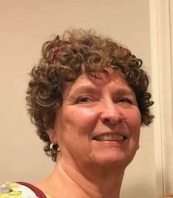
Louisiana State University Lab School, Baton Rouge, LA
Over 35 years of NABT membership, Patsye has served as a regional coordinator several times, served two different terms on the board, as an at large member and a coordinator member, chaired the Awards Committee, chaired the OBTA Committee, served as Louisiana OBTA Coordinator for a number of years, and served as the Louisiana state representative, a member of the Publications Advisory Committee, and the Long Range Planning Committee. She organized and was an officer of the Louisiana Association of Biology Teachers and was a reviewer for The American Biology Teacher (ABT).
Professionally Patsye taught middle school and high school life science for 25 years, taught science education classes at Louisiana State University, and mentored science teachers in an alternative certification program. She was an Access Excellence fellow and received the Tandy Technology Award, the Louisiana OBTA Award, and the Louisiana Science Teachers Association Distinguished Service Science Education Award. She was the co-founder of the Louisiana Coalition for Science to fight legislation to suppress the teaching of evolution, and testified before the Louisiana Legislature and the Louisiana Board of Elementary and Secondary Education. She was also an active member of LSTA and NSTA. She has published several articles in The American Biology Teacher and was on the writing team for Biology in the Community.
Personal Statement
I have to use this space to talk about what NABT has meant to me. I was so incredibly excited at my very first annual conference because every single time slot had
multiple sessions that I wanted to see. It was such an incredible resource, and that is when I was hooked! I went home with my batteries charged and so many ideas for my
classroom. Year after year, I learned so much, met so many amazing people, heard such fascinating speakers, and made friends for a lifetime. I visited places I had never been, and
went on wonderful field trips. I couldn't help but join in to help where I could and to spread the word about NABT, I wanted every biology teacher to have the incredible experiences that I
had. And there is no more supportive community anywhere than NABT. NABT supported us in Louisiana when we fought the evolution wars, as they have supported many others. ABT is an amazing
resource with just the right ideas for all levels. And so many members work so hard to keep NABT going and carry out all the work it does. I have been privileged to watch and work with many
wonderful leaders and workers over the years, and I am so thankful to them all for being the heart and soul of NABT. And that includes a special shout-out to Jacki [NABT's Executive
Director], without whom we probably wouldn't be here today. I have so many dear friends in this organization, and it has always been a highlight to come to the conference to catch up
with them and share time with them, even after I retired.
NABT is really my heart and I hope to continue to spread the word to biology teachers everywhere.
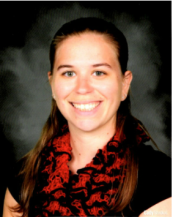
Rockdale Magnet School for Science & Technology, Conyers, GA
Tiffany Shoham Jones has been an AP Biology teacher for 10 years. Through this time, Tiffany has participated as an AP Reader for 7 years, external item writer for 4 years, an admin for the National AP Biology Facebook page for 1 year and mentor for new teachers for 4 years. Tiffany has a Bachelors in Chemistry, a Bachelors in Biology, a Masters in the Arts of Teaching Secondary Education, and a Specialist in Instructional Technology with a goal to begin a Doctoral Program in Fall of 2022. Tiffany writes a newsletter every month to help first year teachers (and other teachers) as they tackle this new challenge that is AP Biology. This newsletter gives teachers an insight to her classroom from activities she completes with her students, tips and tricks for teaching AP Biology, many classroom materials for teachers including self-calculating excel files, a week-long escape room, and a review guide for the AP Exam, and she so much more. Lastly, Tiffany has created a daily free review for students through Instagram (@apbiopenguins) to prepare for the AP Biology exam and continues to build new tools for students each year. Tiffany always strives to be accessible to teachers or students to provide assistance in any fashion needed. Tiffany is so honored to be the recipient of this award and hopes that her AP Bio Penguins make Kim and Fillmore proud.
Tiffany was a first year teacher when she started teaching AP Biology, so she understands the struggles of teaching AP Biology with little support and resources. Thankfully, she had a mentor that helped her through her first year and was the seed to help her bloom. Tiffany tries to be this seed for other teachers and students. Throughout her 10 years of teaching, she has seen many students overcoming challenges knowing that they are “dressed for success”. She believes that all students can be successful and she provides alternative approaches to content knowledge and pedagogy to aid any student to be able to learn. Tiffany teaches sophomores who have never taken on-level Biology, so it is essential that she teaches more than just the AP curriculum. She teaches them skills to help them be more than just a student, she helps them to widen their worldview, and she provides them opportunities to solve real-world problems. As mentioned in her biography, Tiffany plans on starting a doctoral program to find alternative ways to teach biological concepts and increase student engagement and understanding.
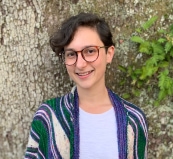
Alabama Connections Academy, Athens, AL
Enya Granados is currently a Biology teacher and Gay Straight Alliance (GSA) co-sponsor at Alabama Connections Academy. She previously taught Pre-AP Biology, Biology, and Environmental Science at Russell County High School. She got her Bachelor’s in Biology and Education from Heidelberg University and is currently pursuing a Master’s in Biology Education at Auburn University. She has been involved in NABT as a participant and presenter for the past 5 years. She is also a Knowles Teaching Fellow through the Knowles Teacher Initiative and has served as the Chair of the Summer Book Committee where they helped guide Fellows through a common summer reading experience centered on equity and STEM education.
Professionally, Enya loves to network with other educators, get to know her students, and reflect with student voices on how to become a better teacher with better lessons. Personally, Enya loves to knit, swim, and cuddle with her chihuahua.
Enya is incredibly grateful to all her mentors and advisors who took their time to invest in her and help support her as a life science educator.
Personal Teaching Statement
I see a lot of gaps and opportunities in life science both in the representation of identities and curriculum. In my classroom, I use phenomena-based and storyline units that center
real-world issues as a way to be culturally responsive. I am constantly inquiring into my practice and teaching frameworks for ways to make my curriculum and teaching more justice-oriented.
My future goals are to become a teacher leader within nationwide organizations and within my school to help schools and teachers become more anti-racist and inclusive by making spaces and
opportunities for teachers (and students) to talk and work together. Additionally, I want to change the biology curriculum to become more inclusive of identities (and the ways that we
teach/talk about identities) as they pertain to race, class, ability, sexuality, and gender. I have so much more learning and growing to do and am excited for what the future might hold.
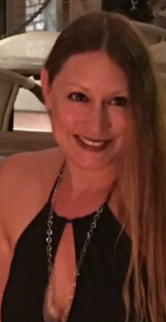
Norwalk Community College, Norwalk CT
I began my career at The New York Botanical Garden, where I eventually ran the plant research facility and investigated plants for novel compounds with medicinal value. I arrived at the Garden as a chemist and while there, I fell in love with plants and biology. One day a colleague asked me to cover his biology class and it was during that lecture I knew I had to make the move from the research laboratory to the classroom. That was over 20 years ago and the best decision of my professional life. Since then, I have brought research techniques, industry, and professional experience to the classroom. I have included students in grant-writing and community programs, pioneered online learning and introduced tangible remote laboratory experiments to accommodate more learners--- quite useful particularly during COVID. I developed several field trips to bolster the classroom experience and help students learn by doing. I further empower students by training them to serve as peer leaders in the classroom. Some of my case studies have been published in textbooks and my research on plant response to heat stress and climate change, cervical cancer and pedagogy have been published in peer-reviewed scientific journals. My path to teaching may not have been a traditional one, but it is one that strengthens my ability to support my students on their individual paths to academic success.
My teaching philosophy is simple: avoid being a “talking head,” students learn from each other and by doing, and making it personal makes it memorable. It is also important to have an inclusive classroom, a safe space where students are welcome and supported for their diverse academic, social, and communication needs. A space where they can freely share opinions and ask questions.
I incorporate my philosophies into my teaching, whether lecture or lab, a field trip, or an in-class break out groups by empowering former students to become peer leaders in the current classroom and involving students in community activities such as tree-planting and pollinator pathway efforts and raising awareness surrounding social injustices such as food insecurity.
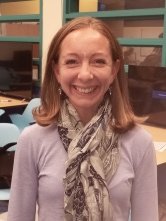
Andover High School, Andover, MA
Lindsey L’Ecuyer has been empowering students to become independent learners for 13 years. Beginning her career as an immunology research technician at Massachusetts General Hospital, she studied the efficacy of an innate immune molecule against Ebola and MRSA. Lindsey was inspired by her past teachers to return to education and share her passion for science with students. At Andover High School, she teaches biotechnology, biology, and forensics. She loves advising BioBuilder Club, a high school synthetic biology club. As part of the BioBuilder Club, Lindsey’s students have appeared on local news stations, published in the journal BioTreks, and were finalists in the international Spellman High Voltage CleanTech competition in New York City for their work on designing engineered cells to break down plastic in the ocean. Lindsey loves working with organizations around the country to develop new biotechnology curriculum for schools, and leads professional development workshops throughout the year. Through her collaborative efforts to discover, develop and implement new curriculum, she has expanded biotechnology programs at Andover High School, allowing for hands-on learning and student-centered activities. Finally, Lindsey recently began an Ed.D program where she plans to establish research-based pedagogy that provides special education students with more opportunities for mastery, creativity, and self-identity in biotechnology.
Personal Teaching Statement
I have been in the classroom for 13 years, teaching biology, biotechnology, and forensics at Andover High School in Andover, MA. I love supporting teachers who are working to try new things
in the classroom, and am especially passionate about finding new ways to help all kinds of students engage meaningfully in science. Our challenge is to involve students in a compelling,
understandable story about advancements in science and science as a process. I tell my students in their work that we all - educators, scientists, citizens - to be successful in science, we
need to be momentarily ok with the uncertainty of not knowing where this is going, and trust that a diverse group of problem solvers will outperform either group alone. Empowering students by
equipping them with the ability to take ownership in science is essential to understanding, acceptance, and growth of our work - together.
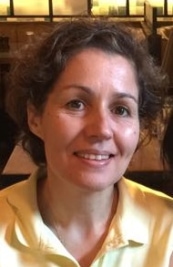
Montgomery College Rockville, Rockville, MD
Evdokia Kastanos, PhD is a Professor of Biology at Montgomery College, in Rockville, Maryland. She teaches Principles of Biology I, Principles of Genetics, Microbiology, and Fundamentals of Scientific Research. One of her major priorities, as course coordinator for Principles of Biology I, is to enhance the quantitative skills of entering biology students to improve their chances to succeed. Professor Kastanos obtained a Bachelor’s and a PhD in Biochemistry, both from the University of Texas at Austin, and did postdoctoral fellowships at the National Cancer Institute and at the Cyprus Institute of Neurology and Genetics. Her current research interests are rapid diagnosis of bacterial and viral infections and inhibition of biofilm formation.
Personal Teaching Statement
I am a community college teacher, which makes me an educator, a mentor, an advisor, and a friend. In my very diverse classrooms, I have to reach the young student, who lacks maturity and
important learning skills, as well as the mature, non-traditional student, who juggles family, job, and course work. I challenge my students by enhancing their quantitative skills, and I use
active learning to engage them. My job is truly rewarding as I have the luxury to teach small groups of students, and hear their personal stories of immigration challenges, financial issues,
family struggles, and career aspirations. The pandemic has made teaching more challenging but, working with amazing colleagues, we came up with wonderful resources to enhance our remote
learning classes. I am so thrilled to be back in the classroom! The pandemic has taught me how valuable personal relationships are for all of us, and especially for our students’
success.

The National Association of Biology Teachers empowers educators to provide the best possible biology and life science education for all students.
NABT, P.O. Box 335, Heber City, UT 84032
office@nabt.org | Fax: (202) 962-3939
(888) 501-NABT or (703) 264-9696
Thank you for visiting the NABT website.
Our privacy policy is found here.
Announcements for products or services on this website do not imply endorsement of or by NABT.
Website by Morweb.org
Copyright National Association of Biology Teachers
